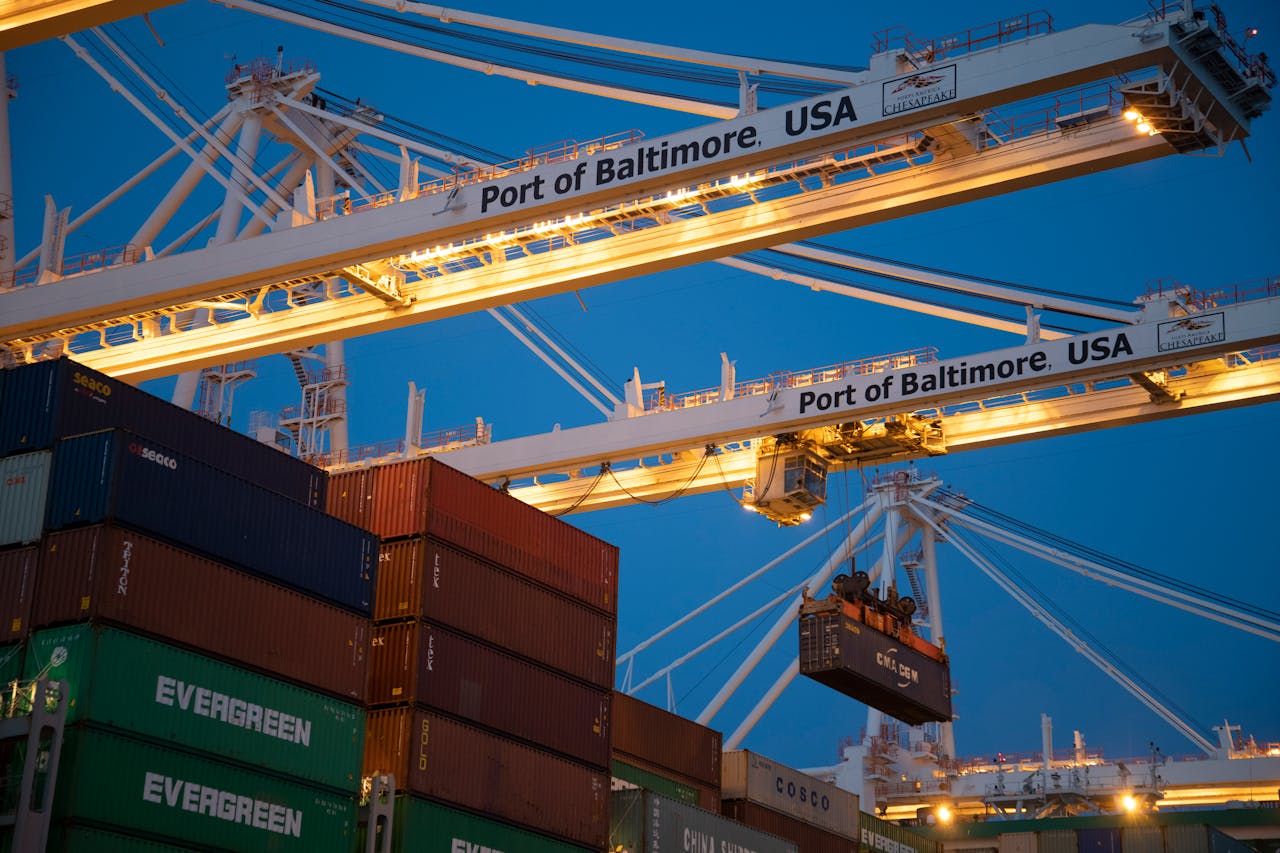Surety Bond Professionals is a family-owned and operated bonding agency with over 75 years of experience. With access to a broad range of surety markets, our expert agents are ready to assist with all of your construction bond needs.
What is the Bid Process in Construction?
The construction bidding process involves five steps: bid solicitation, bid submission, bid selection, contract formation, and project delivery. For a contractor in Maryland to achieve success in the construction bidding process, you need to plan and improve in each of these areas.
If you’re a new contractor or are looking to secure more bids more often, follow our guide below.
What Should a Construction Bid Include?
Successful construction bids generally contain the total cost of building the structure, including expenses for subcontractors, general contractors’ costs, overhead profit, and scope of work. A bid will also need to contain information such as company details, the date, a clear definition of the work, and a project name. Without all of these elements combined, you may not meet the necessary standards.
How Do You Estimate a Construction Bid?
An accurate estimate is not only vital for winning a bid but it can also determine which Maryland Construction bonds you may need. A professional estimate will include:
- Direct costs: This includes materials, labor, and equipment expenses tied directly to construction activities.
- Indirect costs: Consider costs that don’t involve direct construction work, like permits, utilities, security, quality control, administration, and legal fees.
- Labor hours: Wages paid to construction teams should be factored in, including potential overtime.
- Subcontractor expenses: Don’t forget to calculate costs associated with hiring subcontractors for specialized tasks like plumbing, electrical work, or HVAC installation.
What Are the Five Steps in the Process of Bidding?
- Bid Solicitation: This is when the project owner or general contractor invites contractors to submit bids.
- Bid Submission: Contractors prepare and submit their bids with all necessary details, such as pricing, scope of work, and deadlines.
- Bid Selection: The owner of the project will look over bids, including the contractor’s costs, qualifications, and the scope of work suggested. Based on this information, they will choose a bid they believe is best.
- Contract Formation: Once the project owner chooses a bid, they will set up a contract with the winning contractor.
- Project Delivery: At this phase, the contractor will begin work on the project and secure any further surety bonds they may need.
What Licenses and Bonds Do You Need for Maryland Construction Bidding?
Across all State agencies, COMAR 21.06.07.09 requires a bid bond of at least 5% on construction solicitations expected to exceed $100,000. After the award, Maryland’s Little Miller Act (State Finance & Procurement § 17103) obliges contractors on State or other public projects over $100,000 to supply performance bonds (typically 100% of the contract amount and payment bonds (for at least 50% of the contract total).
Maryland does not issue a single statewide general contractor license for most commercial building work. Instead, local counties and municipalities control general building licenses, while the State regulates certain segments. Anyone altering, remodeling, or repairing an owner-occupied dwelling valued over $2,500 must hold a Maryland Home Improvement Commission (MHIC) license, and single-family residential home builders must register with the Attorney General’s Home Builder Registration Unit. Core skilled trades are licensed statewide by the Maryland Department of Labor’s Boards of Master Electricians, Plumbing, and HVACR Contractors.
Before a contract can be awarded, every vendor must register the entity with the State Department of Assessments & Taxation (SDAT) and create a vendor profile in eMaryland Marketplace Advantage (eMMA)—Maryland’s official procurement portal.
Common Mistakes Made While Bidding
Even a well-prepared contractor can be rejected for a bid. Some common reasons this might happen are:
- Incomplete documentation, such as proof of bonds and licenses.
- Inaccurate cost estimates, where your estimate is much higher or lower than average.
- Lack of experience, unproven track record.
- Simple mistakes, like not following the guidelines for the bid strictly or missing paperwork.
- Ambitious timelines, if your proposed timeline does not align with the average timelines submitted you may face rejection.
State vs. Federal Bids?
Understanding the difference between state and federal bids can help you stay compliant when you submit your bid.
| Topic | State | Federal |
|---|---|---|
| Procurement Laws and Regulations | State-specific procurement laws and regulations, varying by state. | Must comply with the Federal Acquisition Regulation, which is stricter and more rigorous. |
| Bonding Requirements | Often need state licensing and bonds like bid bonds and performance bonds. | Also needs bonds but is often required from a federally approved surety company. |
| Project Scope | Projects can range from small repairs to large public works in a specific area. | Contracts can be large-scale, spanning multiple states. |
| Set-Aside Programs | Some states have set-aside programs for small businesses, minority-owned, or veteran-owned businesses, but this varies. | The federal government has many set-aside programs for small businesses, veteran-owned, women-owned, and disadvantaged businesses through programs like 8(a) or HUBZone. |
| Competition | Often limited to nearby areas, reducing competition. | Open to contractors nationwide, increasing competition and opportunities. |
Unique Aspects of the Maryland Construction Bidding Process
- State-level credentials and business registration. Maryland does not issue a single statewide general contractor license for commercial work; most counties and municipalities issue or register those credentials individually. Anyone who alters, remodels, or repairs an owner-occupied dwelling must hold a Maryland Home Improvement Commission (MHIC) license. At the same time, new home builders must register with the Attorney General’s Home Builder Registration Unit before signing a sales contract. Specialty trades are licensed statewide by the Department of Labor’s Boards of Electricians, Plumbing, and HVACR Contractors. All business entities—domestic or foreign—must register with the State Department of Assessments & Taxation (SDAT) and obtain any needed sales and use tax license from the Comptroller of Maryland before they can bid or collect tax on materials or services.
- Building codes and plan review. Maryland’s Building Performance Standards (MBPS) adopt the 2021 IBC, IRC, and IECC (with state amendments) statewide. Local governments may make the building and residential codes more, but not less, stringent and may not weaken the energy or accessibility provisions. State-funded vertical construction follows the Model Performance Code (COMAR 09.12.50). Coastal counties frequently add higher windload and flood resilience requirements along the Chesapeake Bay and Atlantic barrier islands.
- Environmental and water resource permits. Any project disturbing one acre or more of soil must file a Notice of Intent (NOI) and obtain coverage under the MDE Construction General NPDES Permit before land-disturbing work begins. Work in tidal or nontidal wetlands, waterways, or mapped floodplains requires separate permits from the MDE Wetlands & Waterways Program. Activities in navigable waters or wetlands may also need Section 404/10 authorization from the U.S. Army Corps of Engineers.
- Insurance requirements. Under the Maryland Workers’ Compensation Act, every employer with one or more employees—even part-time—must carry workers’ compensation insurance; there is no hour-based exemption. Maryland does not impose a statewide general liability mandate for contractors. Still, most public owners, lenders, and local permit offices require adequate general and excess liability coverage as a condition of bid acceptance or permit issuance.
- Public Works bidding and prequalification. For state-funded construction, COMAR 21.05.02.04 B and the Maryland Procurement Manual require competitive sealed bidding with at least 20 days’ public notice in eMMA for solicitations expected to exceed $50,000. MDOT SHA highway lettings occur on fixed bid-opening dates; because SHA lacks a prequalification program, firms simply obtain a Bid Express digital ID and upload their proposals.
- Bid security and final bonds. All State construction solicitations over $100,000 must include bid security (typically a bid bond) of at least 5% of the bid price. After award, Maryland’s Little Miller Act (State Finance & Procurement § 17103) obliges contractors on State or local public works contracts over $100,000 to furnish performance security in an amount the procuring agency deems adequate (typically 100% of the contract price), and a payment bond of at least 50% of the contract total. MDOT SHA follows the same rule and explicitly requires 100% performance and payment bonds on highway contracts of $100,000 or more.
Maryland Bid Network
Contractors and suppliers looking for State and local work in Maryland track two main platforms:
- eMaryland Marketplace Advantage (eMMA). Operated by the Department of General Services, eMMA is Maryland’s 24-hour vendor portal for registration, searching current and archived solicitations, downloading bid tabs and award notices, and submitting electronic responses when allowed. A single dashboard lets users filter opportunities for goods, services, A/E, and non-highway construction across state agencies and many counties and municipalities. Keeping an active eMMA profile—and the right commodity codes—ensures automatic email alerts whenever new matches post.
- MDOT State Highway Administration (SHA) Bid Express site. All road, bridge, and maintenance lettings—including tentative schedules, addenda, bid results, and award memos—are advertised on SHA’s Contracts, Bids & Proposals pages and bid electronically through Bid Express. SHA does not maintain a standing prequalification list; contractors simply obtain a Bid Express digital ID before uploading proposals.
Because eMMA and SHA’s Bid Express pages are built for government-to-business (G2B) and business-to-business (B2B) transactions, they do not facilitate direct consumer sales. By registering in eMMA (which feeds Maryland’s statewide financial systems) and keeping company data current, vendors gain full visibility into statewide contracting and receive automatic notifications whenever new opportunities align with their profile.
Succeed in the Maryland Construction Bidding Process
To succeed in the Maryland construction bidding process, you need accurate estimates and documentation as well as a solid grasp of the requirements and nuances of state vs federal bids. However, one of the most important components of your bid is securing the right surety bonds, such as bid bonds, performance bonds, and payment bonds.
When you choose a reliable surety bond agency, you can feel confident that your bond will meet all legal and regulatory requirements. At Surety Bond Professionals, we know the challenges you may face and are here to support you with all your bond needs. Contact us today for a quote.
Call Us Today
Our surety bond professionals will help you grow your revenue by maximizing your surety capacity. Call us today!





